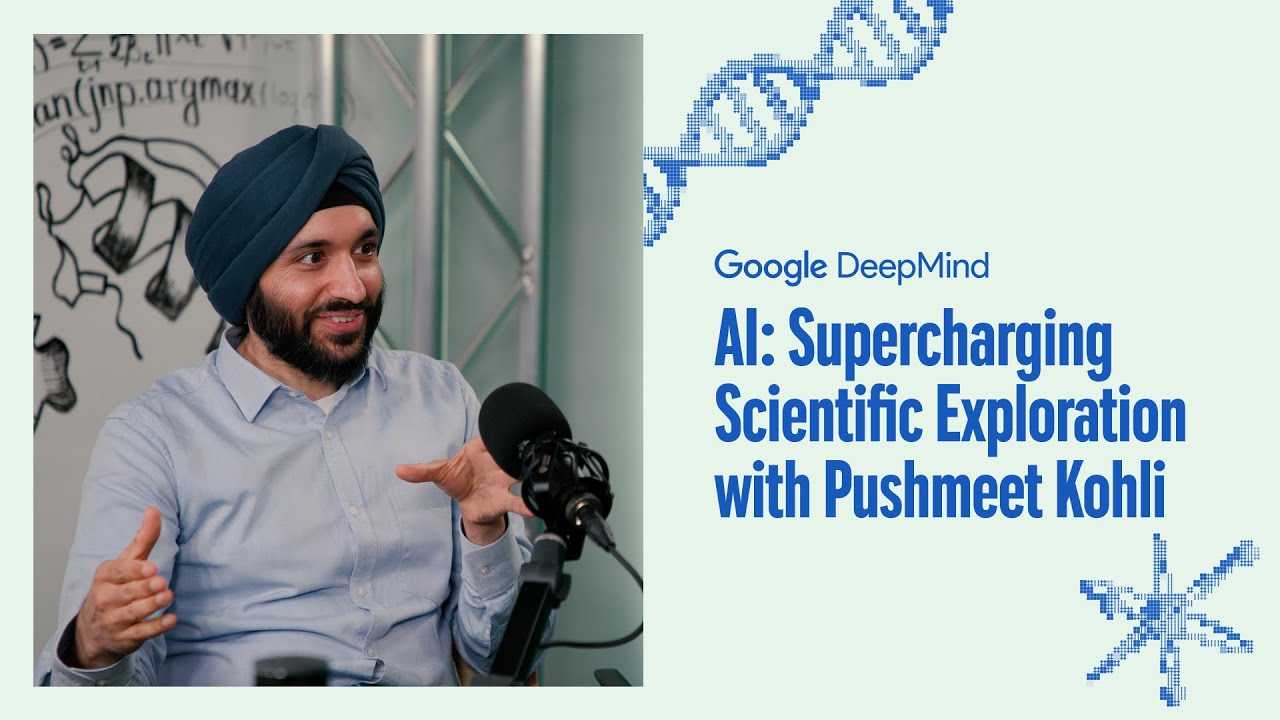In the Google DeepMind podcast, Pushmeet Kohli discusses how AI, particularly through advancements like AlphaFold, is revolutionizing scientific exploration by accurately predicting protein structures and their interactions, significantly impacting biological research. He also highlights AI’s contributions to weather prediction and material science, emphasizing the importance of interdisciplinary collaboration and the transformative potential of AI across various scientific fields.
In the latest episode of the Google DeepMind podcast, host Professor Hannah Fry engages with Pushmeet Kohli, the head of scientific research at Google DeepMind, to discuss the transformative impact of artificial intelligence (AI) on scientific exploration. The conversation highlights the significant advancements made in various scientific fields, particularly through the use of AI systems like AlphaFold, which has revolutionized our understanding of protein structures. Kohli explains that proteins are fundamental building blocks of life, and AlphaFold can predict their 3D structures from amino acid sequences, solving a long-standing challenge in biology.
Kohli elaborates on the advancements from AlphaFold 2 to AlphaFold 3, noting that the latest version not only predicts protein structures but also elucidates how proteins interact with other biomolecules, such as nucleic acids and small molecules. This capability has garnered excitement among scientists, as it allows for rapid structural insights that were previously unattainable. The AlphaFold database, which contains structures of nearly all known proteins, has been accessed by millions of scientists worldwide, demonstrating the widespread impact of this technology on biological research.
The discussion then shifts to other areas where AI is making strides, such as weather prediction and material science. Kohli describes the development of a new weather prediction model called GraphCast, which can make accurate 10-day forecasts more efficiently than traditional supercomputer models. In material science, the AI model named Gnome has expanded the known stable materials from 50,000 to 2.2 million, opening up new possibilities for discovering materials with desirable properties, such as improved battery performance or superconductivity.
Kohli emphasizes the importance of interdisciplinary collaboration in these projects, as the complexity of scientific problems often requires diverse expertise. He shares insights into how AI can assist in discovering new algorithms in computer science through a project called Fun Search, which leverages large language models to propose innovative solutions to complex problems. This approach has already yielded new results in computer science, showcasing the potential of AI to contribute to fields beyond biology and material science.
In conclusion, the podcast highlights the seismic shift that AI is bringing to the scientific landscape, with implications that extend across various disciplines. Kohli expresses optimism about the future of AI in science, noting that the technology is not just enhancing existing knowledge but is fundamentally transforming how research is conducted. The episode underscores the excitement and potential of AI to drive significant advancements in our understanding of the natural world, encouraging listeners to engage with the ongoing developments in this rapidly evolving field.
